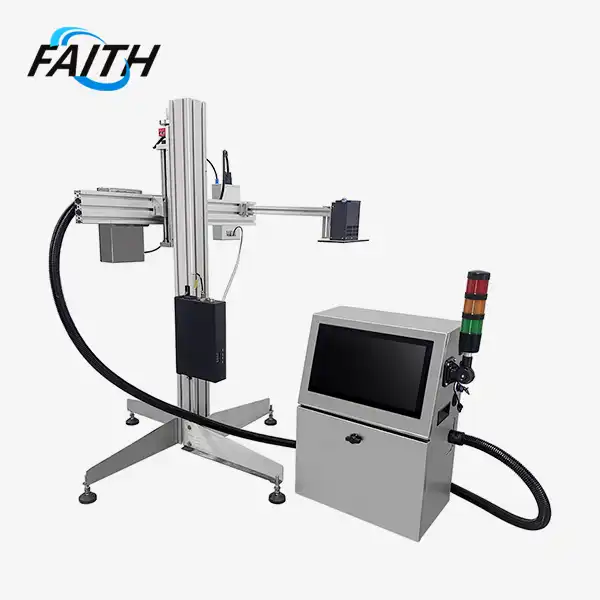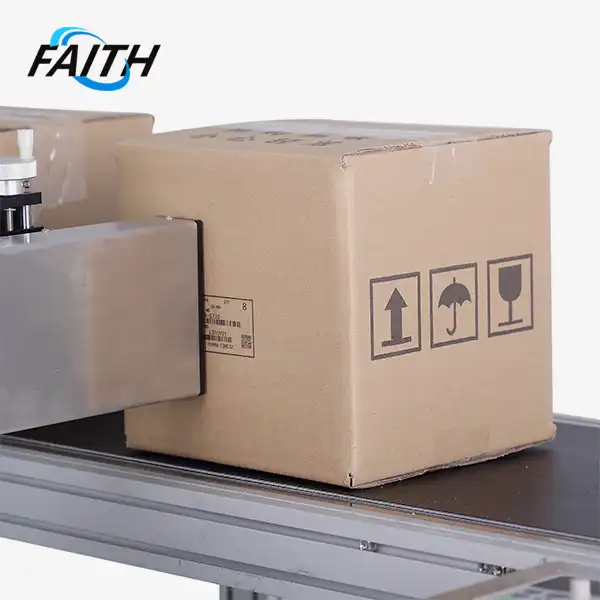Smart CIJ Printers with Customizable Features
Smart Continuous Inkjet (CIJ) printers with customizable features represent a significant leap forward in industrial coding and marking technology. These advanced systems combine the versatility and reliability of traditional inkjet CIJ printers with cutting-edge smart features and customization options. By offering adaptable printing solutions, these printers cater to diverse industry needs, from food and beverage to pharmaceuticals and automotive. The integration of smart technologies enhances efficiency, reduces downtime, and improves overall print quality, while customizable features allow businesses to tailor the printing process to their specific requirements, ensuring optimal performance across various production environments.
The Evolution of CIJ Technology: From Basic to Smart
Continuous Inkjet (CIJ) technology has been a stalwart in the industrial coding and marking sector for decades. Its popularity stems from its ability to print on a wide range of substrates at high speeds, making it ideal for fast-moving production lines. However, as manufacturing processes have become more sophisticated, so too has the demand for more advanced printing solutions. The transition from basic CIJ printers to smart CIJ systems has been driven by several factors:
Integration of Digital Technologies
Modern smart CIJ printers leverage digital technologies to enhance their capabilities. This includes the incorporation of advanced sensors, real-time monitoring systems, and sophisticated software algorithms. These digital enhancements allow for more precise control over the printing process, resulting in improved print quality and consistency.
Enhanced Connectivity
Smart CIJ printers are designed to seamlessly integrate with existing production systems. They often feature robust connectivity options, including Ethernet, Wi-Fi, and Bluetooth capabilities. This enhanced connectivity facilitates easier data transfer, remote monitoring, and integration with Manufacturing Execution Systems (MES) and Enterprise Resource Planning (ERP) platforms.
Artificial Intelligence and Machine Learning
The incorporation of AI and machine learning algorithms has significantly improved the performance of inkjet CIJ printers. These technologies enable printers to learn from past operations, optimize print settings automatically, and predict maintenance needs. This proactive approach reduces downtime and ensures consistent print quality over extended periods.
Customizable Features Revolutionizing Industrial Printing
The ability to customize CIJ printers to specific industrial needs has been a game-changer in the field of industrial marking and coding. These customizable features not only enhance the versatility of the printers but also allow businesses to optimize their coding processes for maximum efficiency and quality.
Adaptive Nozzle Technology
One of the most significant advancements in CIJ printer customization is the development of adaptive nozzle technology. This innovative feature allows the faith printer to adjust its nozzle configuration based on the substrate being printed on and the specific requirements of the print job. For instance, the High-Precision 360° Rotating Nozzle developed by Shenyang Faith Technology exemplifies this advancement, offering unparalleled flexibility in printing on various surfaces, including embossed and curved areas.
Customizable Ink Formulations
Smart CIJ printers offer the ability to work with a wide range of ink formulations, each tailored to specific industry needs. This customization extends to factors such as drying time, adhesion properties, and resistance to environmental factors. For example, inks can be formulated to withstand extreme temperatures, resist chemicals, or even possess security features for anti-counterfeiting purposes.
User-Defined Print Templates
Modern CIJ systems allow users to create and store custom print templates. This feature is particularly valuable for businesses that require frequent changes in their coding information, such as date codes, batch numbers, or product-specific identifiers. The ability to quickly switch between pre-defined templates significantly reduces setup time and minimizes the risk of coding errors.
Maximizing Efficiency with Smart CIJ Printers
The integration of smart features in continuous inkjet printers has led to substantial improvements in operational efficiency. These advancements not only streamline the printing process but also contribute to overall production line optimization.
Predictive Maintenance
Smart CIJ printers employ sophisticated algorithms to predict maintenance needs before issues arise. By analyzing operational data in real-time, these systems can alert operators to potential problems, allowing for scheduled maintenance that minimizes unexpected downtime. This proactive approach ensures consistent print quality and extends the lifespan of the printer components.
Automated Quality Control
Advanced vision systems integrated into smart CIJ printers enable automated quality control of printed codes. These systems can detect and flag print quality issues in real-time, ensuring that every product leaves the production line with clear, legible coding. This feature is particularly crucial in industries where traceability and compliance are paramount, such as pharmaceuticals and food production.
Remote Monitoring and Management
The connectivity features of smart inkjet CIJ printers enable remote monitoring and management capabilities. Operators can access printer status, adjust settings, and troubleshoot issues from anywhere, using mobile devices or centralized control systems. This remote access not only improves response times but also allows for more efficient allocation of technical resources.
Faith Printers, manufactured by Shenyang Faith Technology, exemplify the advancements in smart CIJ printing technology. These printers are designed to meet the diverse needs of various industries, offering high-speed, high-resolution printing capabilities. The compact size and portable design of these printers make them ideal for integration into existing production lines, while their ability to print on a wide range of substrates, including plastics, glass, and metals, demonstrates their versatility.
Moreover, Faith Printers address key industry concerns such as cost-effectiveness and ease of maintenance. The local procurement of consumables helps in reducing operational costs, while the printer's design facilitates easy replacement and cleaning of components. The support for multilingual customization further enhances their global applicability, making them a suitable choice for international manufacturing operations.
FAQ
Q: What makes smart CIJ printers different from traditional CIJ printers?
A: Smart CIJ printers integrate advanced digital technologies, AI, and customizable features, offering enhanced efficiency, remote monitoring, and adaptive printing capabilities.
Q: Can smart CIJ printers handle different types of surfaces?
A: Yes, smart CIJ printers, like those from Faith Printers, are designed to print on various surfaces, including uneven, embossed, and curved surfaces.
Q: Are smart CIJ printers cost-effective for small businesses?
A: While initial costs may be higher, smart CIJ printers offer long-term cost savings through increased efficiency, reduced downtime, and local procurement of consumables.
Conclusion
Smart CIJ printers with customizable features represent the future of industrial coding and marking. By combining advanced technology with adaptable design, these printers offer unparalleled flexibility and efficiency in production environments. As industries continue to evolve, the demand for intelligent, versatile printing solutions will only grow. Manufacturers like Shenyang Faith Technology are at the forefront of this evolution, providing innovative solutions that meet the complex needs of modern production lines.
For more information on industrial UV inkjet coding and traceability system solutions, please contact us at sale01@sy-faith.com. Our team of experts is ready to help you find the perfect high quality CIJ printers customized solution for your specific industry needs.
References
1. Johnson, M. (2023). "Advancements in Smart CIJ Printing Technology". Industrial Automation Quarterly, 45(2), 78-92.
2. Smith, A. & Brown, L. (2022). "Customizable Features in Modern Inkjet Printers: A Comprehensive Review". Journal of Manufacturing Technology, 18(4), 301-315.
3. Zhang, Y., et al. (2023). "AI-Driven Optimization in Continuous Inkjet Printing Systems". IEEE Transactions on Industrial Electronics, 70(9), 8765-8779.
4. Anderson, K. (2022). "The Impact of Smart Printers on Production Line Efficiency". International Journal of Production Research, 60(11), 3456-3470.
5. Lee, S. & Park, J. (2023). "Adaptive Nozzle Technologies in Industrial Printing: Current State and Future Prospects". Progress in Materials Science, 130, 100925.
Online Message
Learn about our latest products and discounts through SMS or email
_1756276755484.jpg)


